
- By Theme
-
Destinations
-
Indian Destinations
-
International Destinations
-
- Best Places to Visit
- Packages
- Search Agents
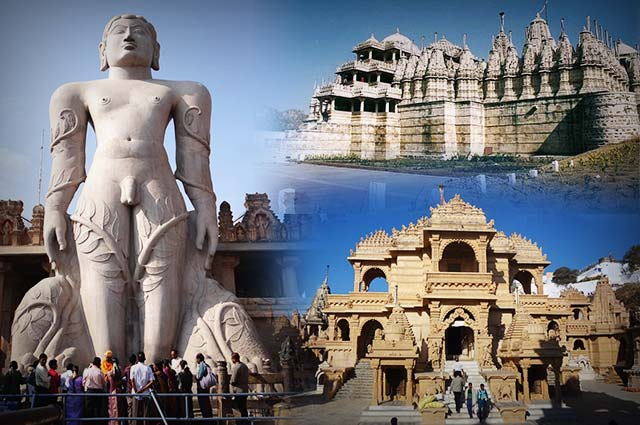
Jainism is anancientreligion in India that instills devotion and beliefs. Mahavir Jayanti, the birthday of Lord Mahavir, the last Tirthankara or spiritual leader who invigorated the Jain Order, is a gazetted holiday in India. As the most important event in Jainism, Mahavir Jayanti is celebrated with boundless dedication and zeal by the disciples with ritualistic baths (calledAbhishek), meditations, devotions, and offerings. There are many Jain temples in India located in the different parts of the country with unique architectural splendor.
The North Indian Jain temples are completely different from the South Indian Jain temples in terms of architecture. There are two types of Jain temples:
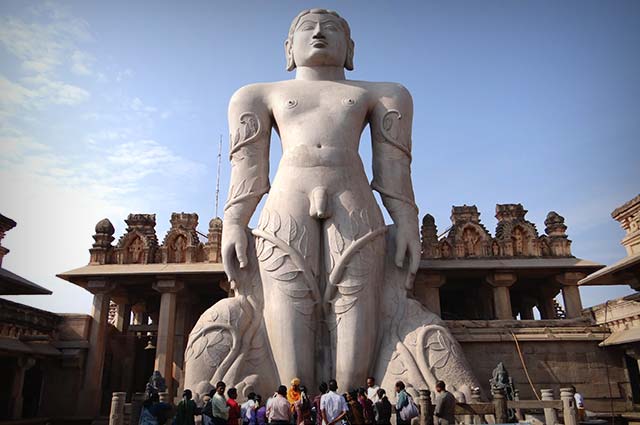
The largest colossal statue of Bahubali in the world with 57 feet in height, Gommateshwara statue is an enormous black stone structure that has been carved out of a single block of granite rock and stands on the peak of a hill. Phew! Every 12 years, the disciples throng to the temple to organize a Mahamastakabhisheka, wherein the sculpture is anointed with milk & saffron paste and dusted with the powders of sandalwood, turmeric, and vermilion. This ceremony is extremely venerated by the disciples. The grandeur of the Gommateshwara statue beguiles a number of devotees every year.
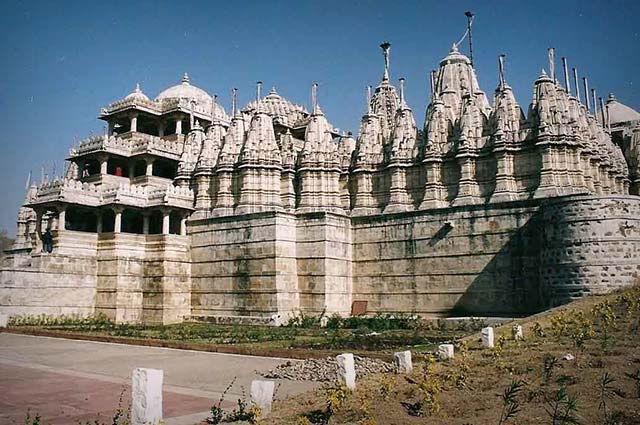
Built around the 12thcentury and counted among one of the finest monuments of India, the marvelously carved Dilwara Temple is located at the holy hill station of Mount Abu in Rajasthan. Renowned for its uniquearchitecture, each of the five temples was built in the honor of a different Tirthankara, having convoluted and salient carvings in marble that include the statues of Jain Saints, exquisitely detailed columns and even a hall with 360 miniscule statues of Jain Tirthankaras. The intricate architecture of this temple beguiles droves of devotees and tourists from the far-flung countries of the world.
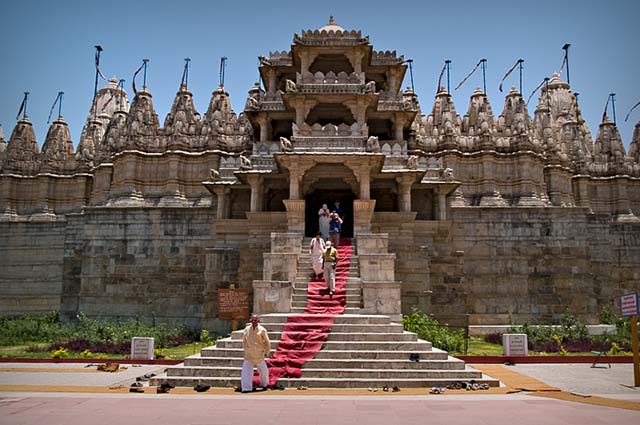
Cogitated to be a vivid example of dedication and workmanship, the labyrinthine Ranakpur Temple is situated in Desuri Tehsil in the Pali district of Rajasthan. The construction of this temple was well documented in a 1437 CE copperplate record. The three-leveled temple rises from the hill and is supported by no less than 1,444 beautifully carved marble columns. The temple is dedicated to Lord Adinatha.
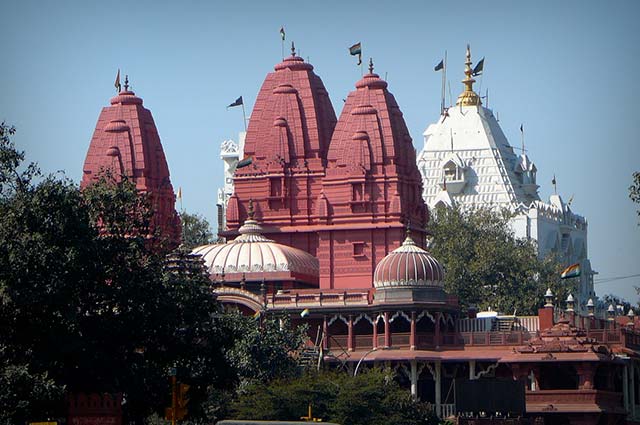
The oldest Jain temple of the city that dates back to the reign of Mughal Emperor Aurangzeb, Sri Digambar Jain Lal Mandir was developed in 1656 and houses a Birds Charity Hospital. The temple is embellished with shrines of the great Lord Mahavir and is dedicated to Lord Parshvanath. The Architecture of the temple boasts striking carvings in red sandstone and attractive paintwork. The heavenly chants will soothe your soul as you enter the Shri Digambar Jain Lal Mandir.
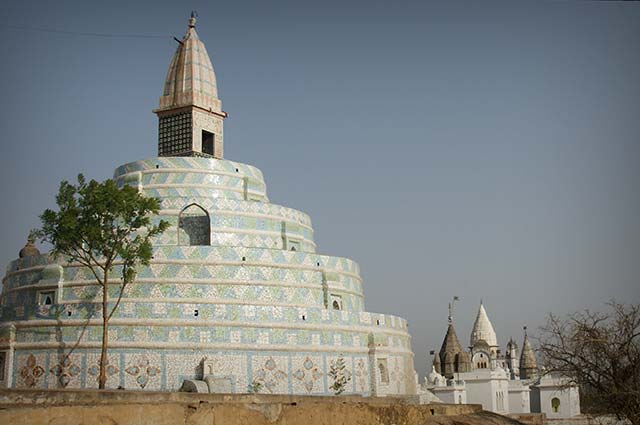
Sonagiri is a place near to the Datia district of Madhya Pradesh that is dotted with a plethora of white Digambar Jain Temples. One of the primary pilgrimage places for the Jain followers, the scared Sonagiri Temple is extremely unique. This was the site where Nangang Kumar attained Moksha along with his fifteen million followers. Housing an 11 feet tall idol of Lord Chandraprabhu and a magnificent 43 feet tall Manstambh, the temple is not only famed for its divine impact but also for its architectural glory.
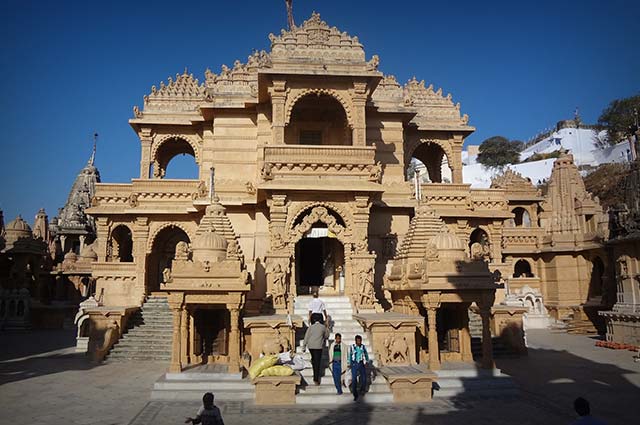
Located on Shetrunjaya hills in the city of Palitana in Gujarat, Palitana Temple is considered to be one of the most sacred Jain temples in India. Built over generations from the 11thcentury, this is an esteemed Jain pilgrimage site. With over 3,000 brilliantly carved temples, their adornment is such that in the sunlight, these temples seem to have been made up of ivory. Dedicated to the first Tirthankara- Rishabhanath, the climb to the main temple with over 3,800 stone steps is not as easy as pie, but that does not dissuade the thousands of devotees from visiting the temple every year.
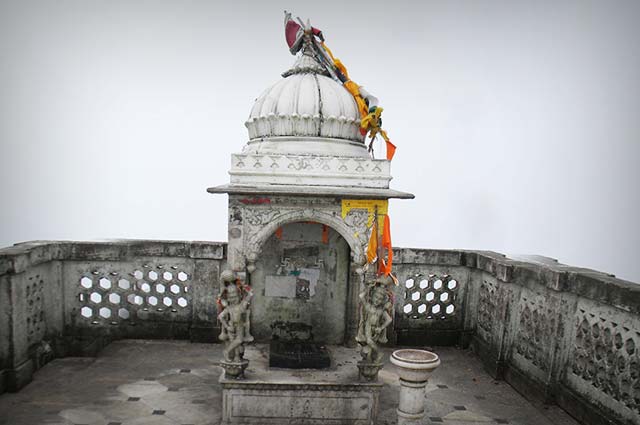
Located on the Parasnath Hill in Giridih district of Jharkhand state, the Shikharji temple is an eminent pilgrimage center for Jains, which is supposed to be more than 2,000 years old. Also known as Sammed Shikhar, meaning the peak of focus, it is a place where twenty of the twenty-four Tirthankaras attained a state of Moksha through meditation. The temple is dedicated to Shri Digambar Jain. The aura of this famous Jain temple is enough to purify your soul.
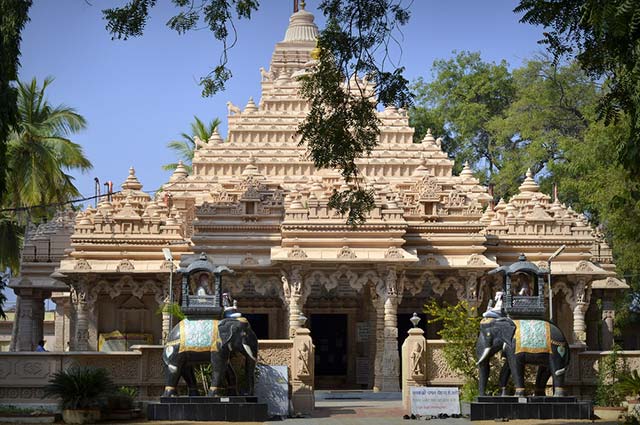
Sited in the Nalgonda district of the state of Telangana, positioned 80 kilometers away from the city of Hyderabad, Kulpakji temple is a renowned Swetambra Jain pilgrimage center constructed in the 10th century. The sculpture of Lord Rishabhanatha placed in this temple is renowned as 'Manikyaswami' because it was carved out of a precious green stone. The temple has magnificent idols of Lord Rishabhanatha, Lord Mahavira, and Lord Neminatha. The stunning carvings on the temple walls and the combination of red sandstone with the white marble pillars display the architectural glory of the temple.
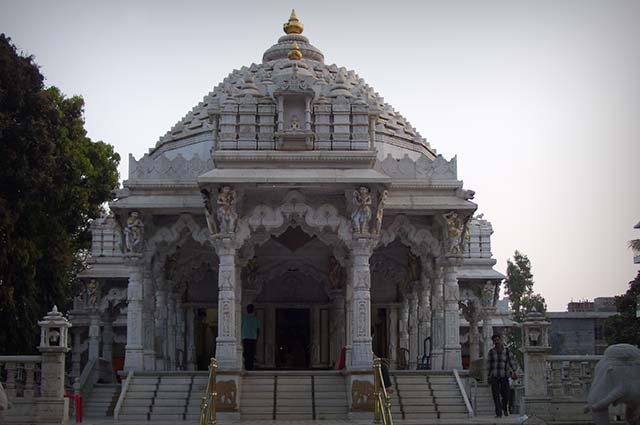
Located in Mattancherry, Dharmanath temple is devoted to Lord Dharmanath (the 15thTirthankar). After Chandragupta Maurya toured to Shravanbelagola in Karnataka, his disciples also traveled to Tamil Nadu and Kerala seeking places of seclusion for their sacraments and meditations. The beautiful architecture and splendor heritage of Jainism is depicted in the exquisitely sculpted Sanctorum of the Tirthankar Dharmanath. The stunning portrait of Gajalakshmi sitting on the lotus positioned at the gates of the temple will leave you awestruck.
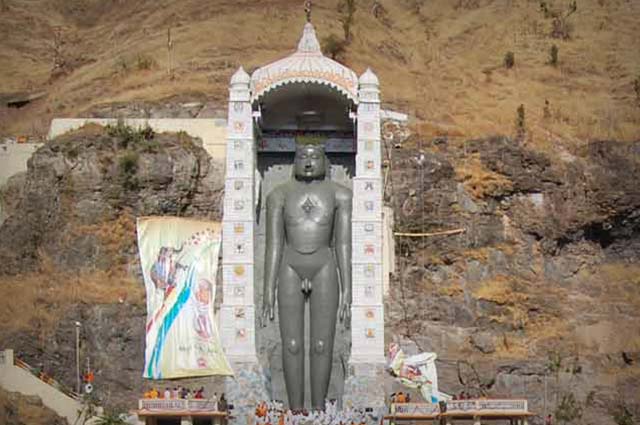
Renowned for its world's tallest sculpture of the first Jain Tirthankara Adinatha standing in the position of meditation, Bawangaja temple is situated in the Barwani district of Madhya Pradesh. What makes it more exceptional and riveting is the fact that this 84-feet tall statue is made by cutting the rock of one single mountain! (Huh) With Bhagwan Adinath's statue, the four-armed 'GomukhYaksha' On the left side and sixteen-armed Yakshi Chakreshvary's idol on the right side, the temple boasts a great architectural magnificence!
Jainism prevails three main principles Ahimsa (non-violence), Anekantavada (non-absolutism), and Aparigraha (non-possessiveness) that lead to Moksha. Visit these sacred pilgrimage sites to experience the inner peace and bliss of meditation.